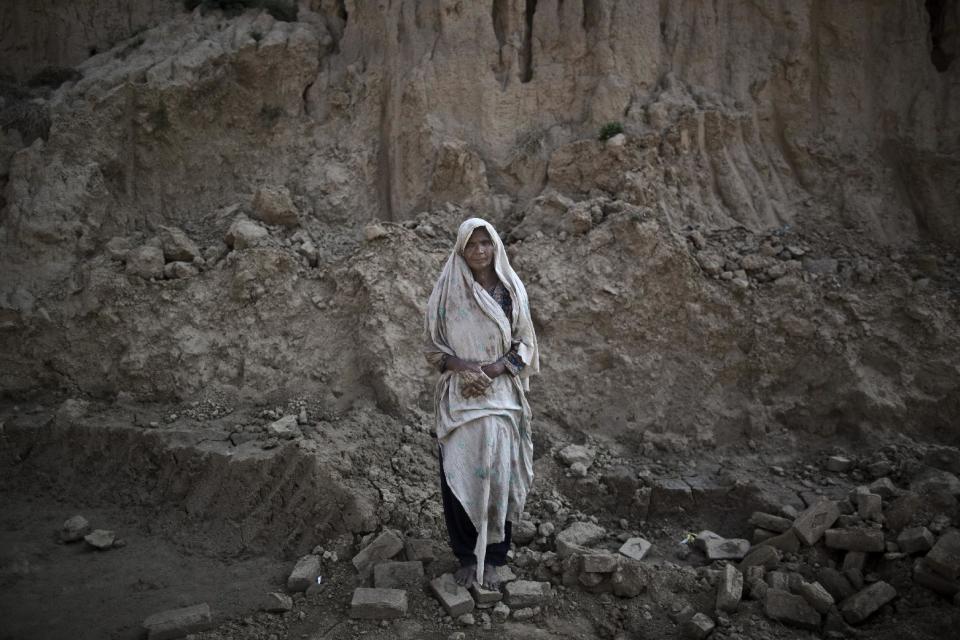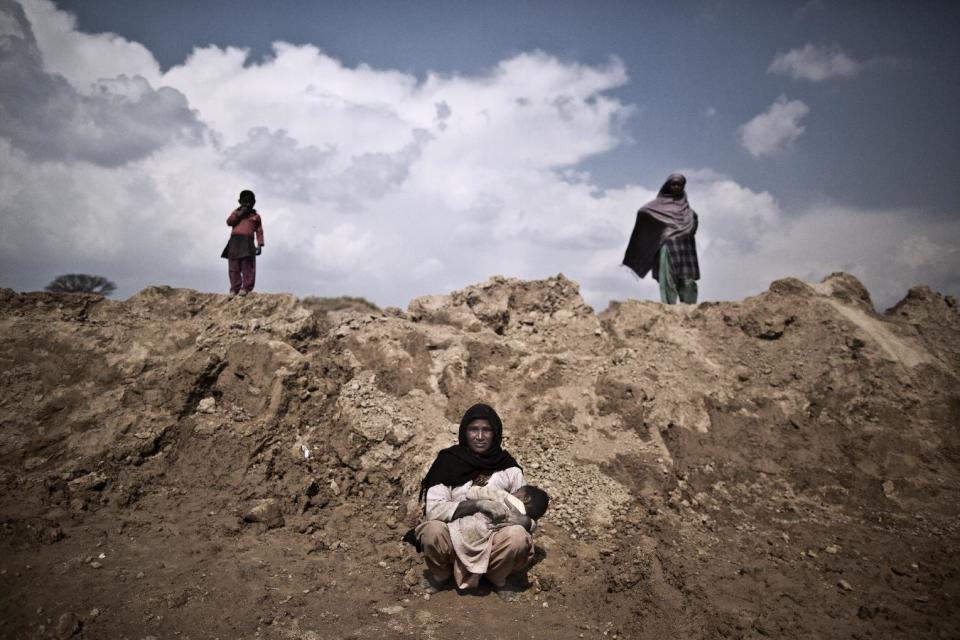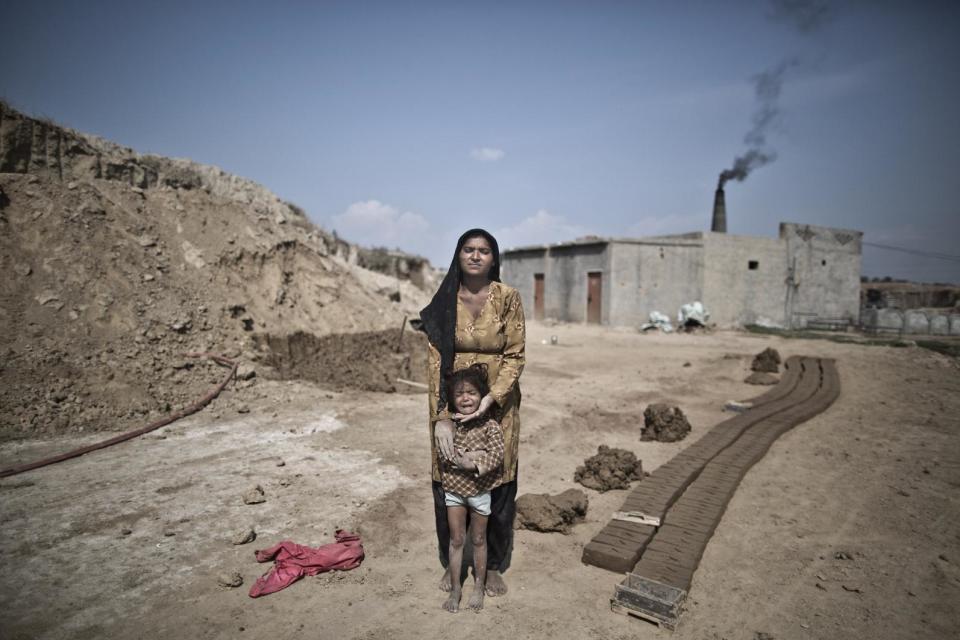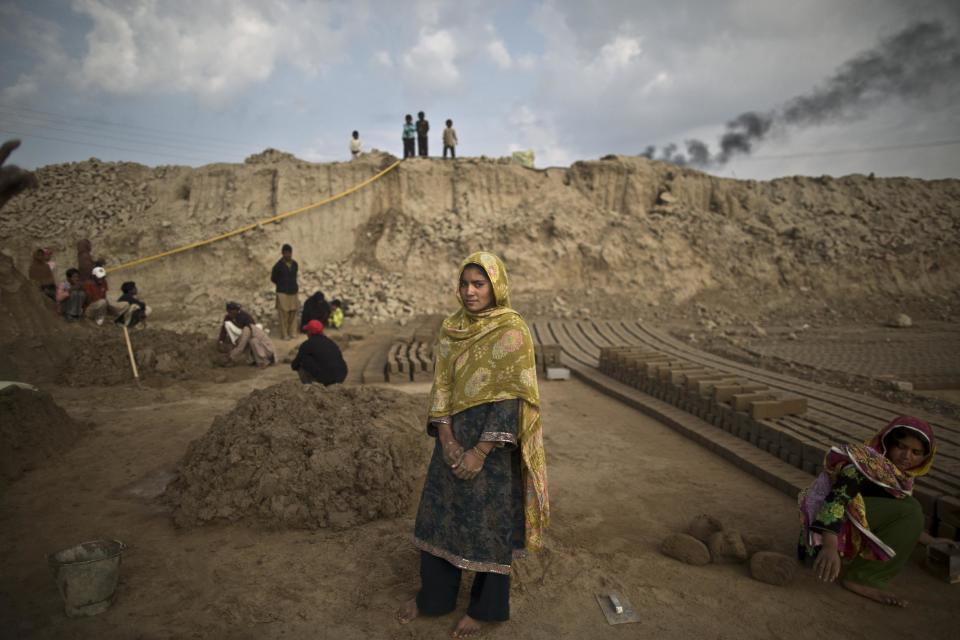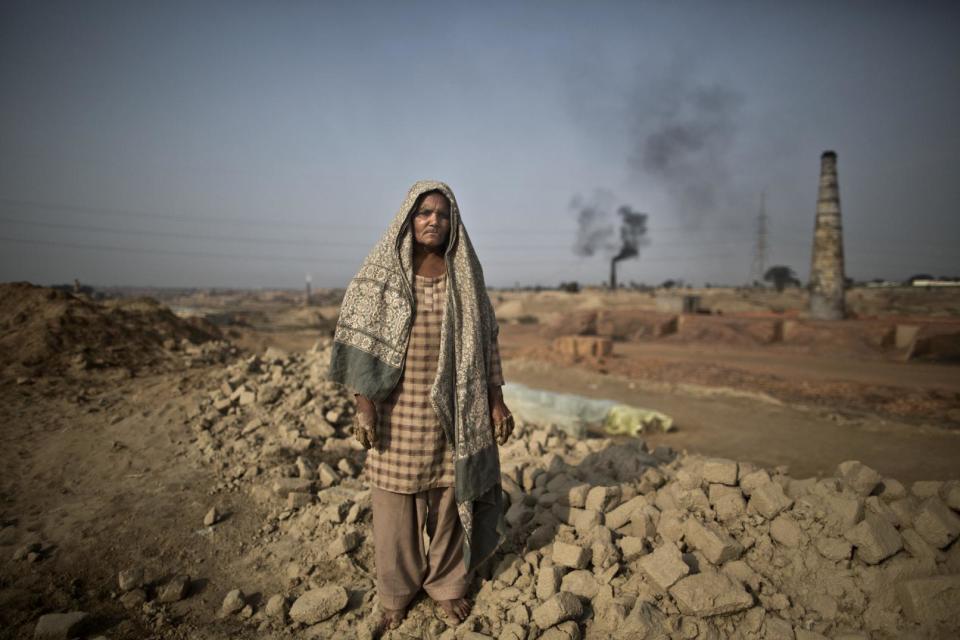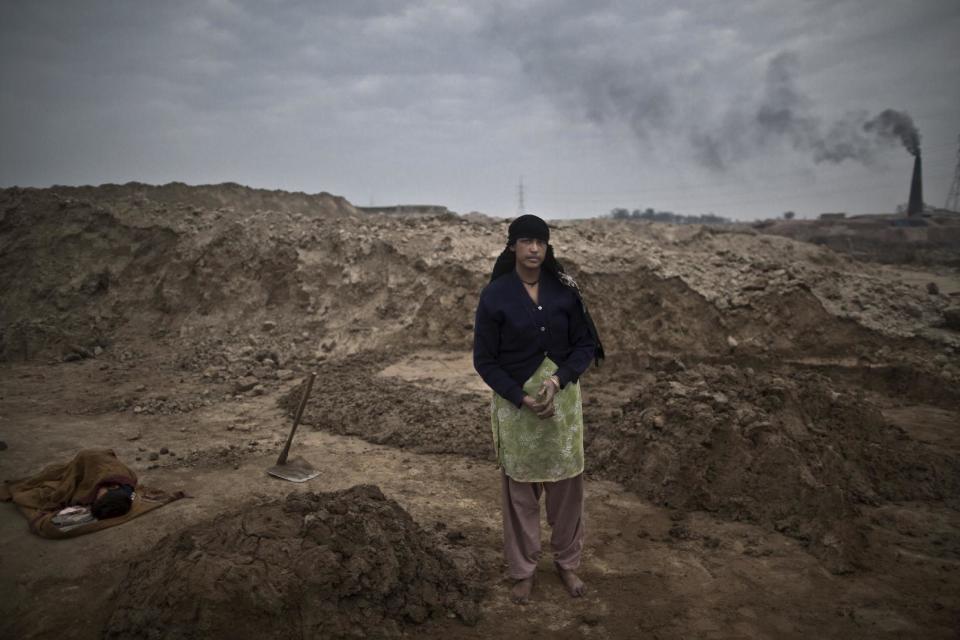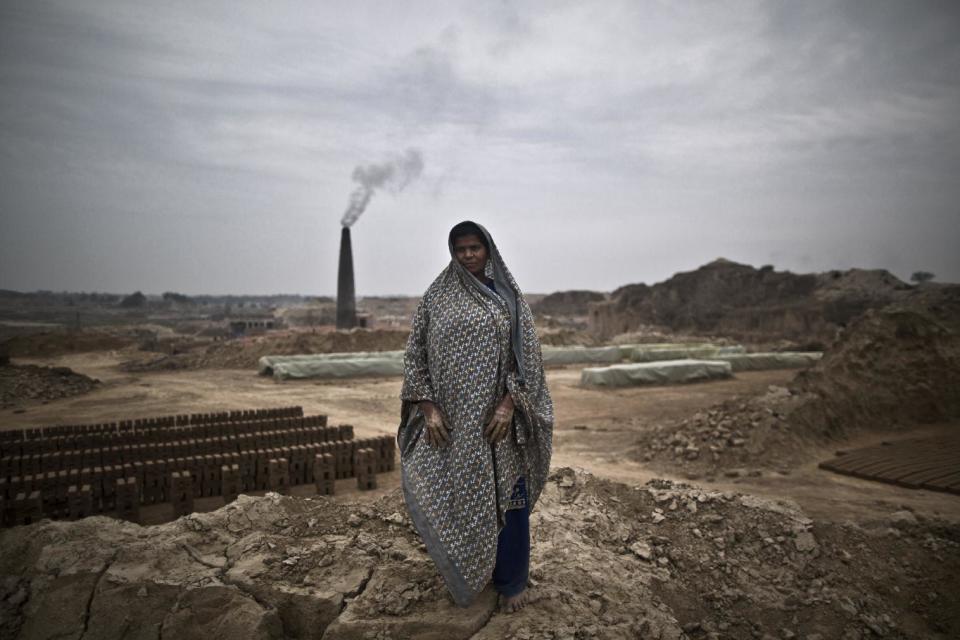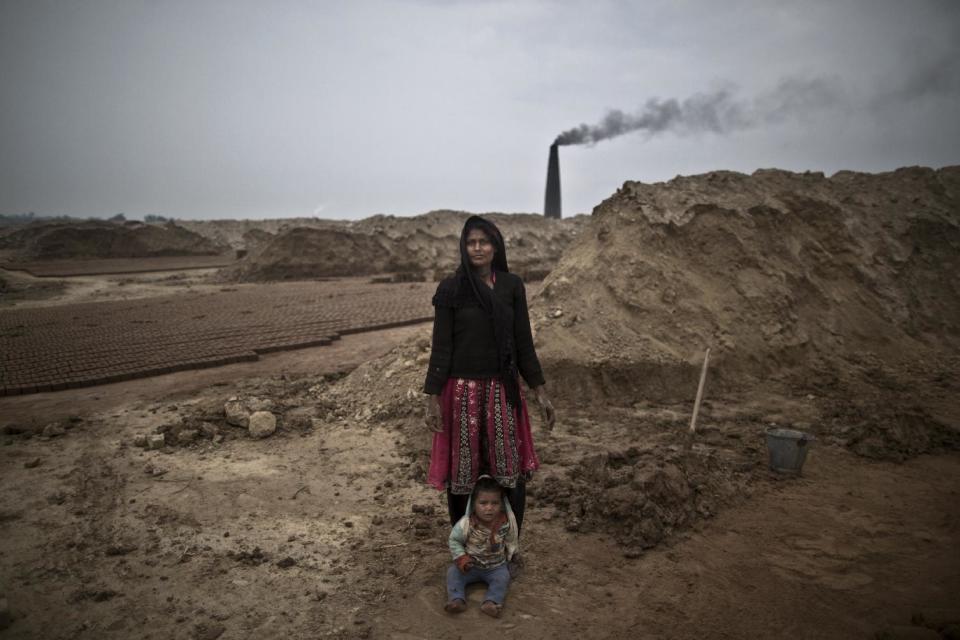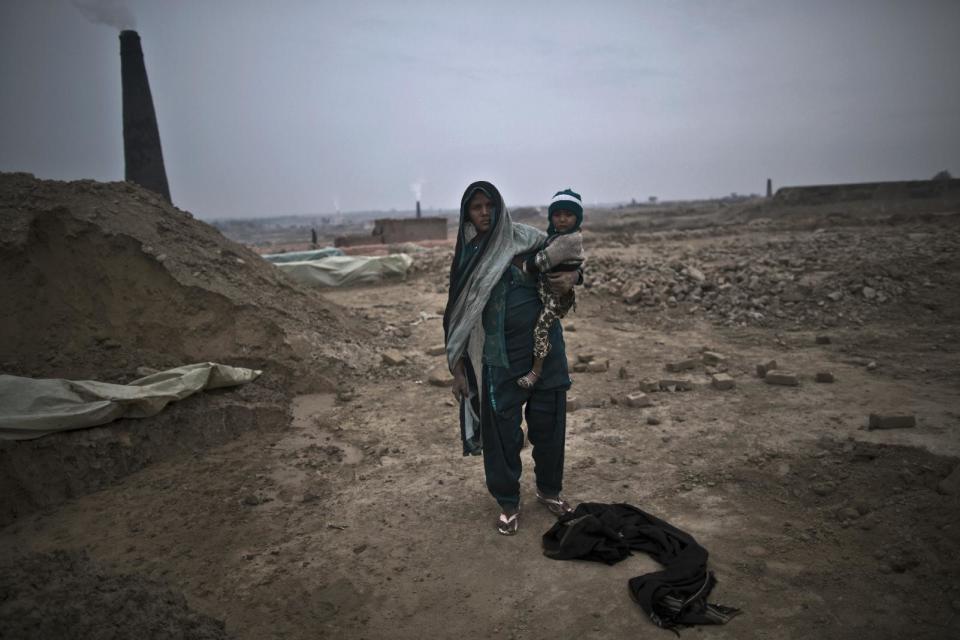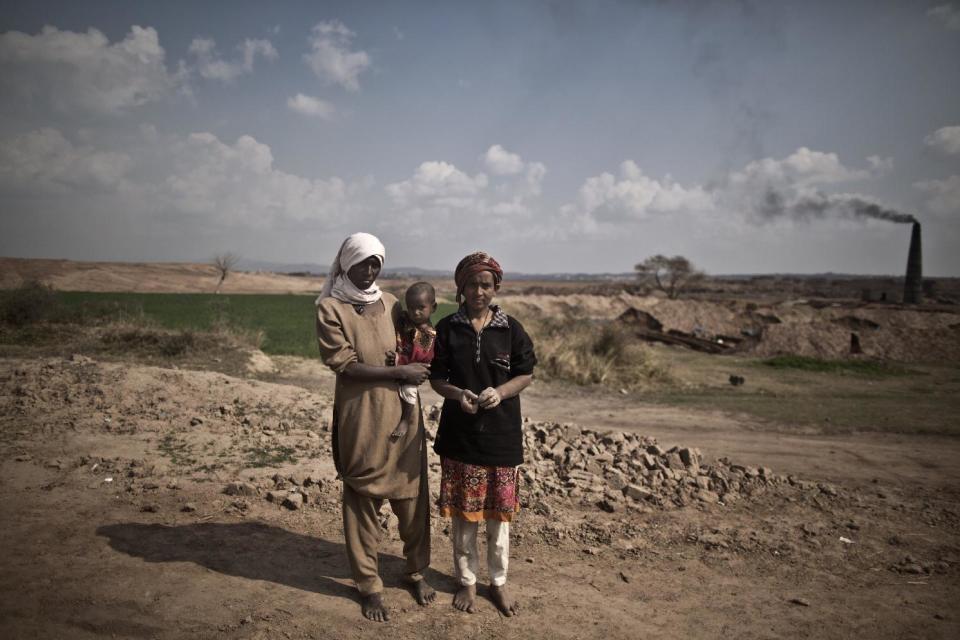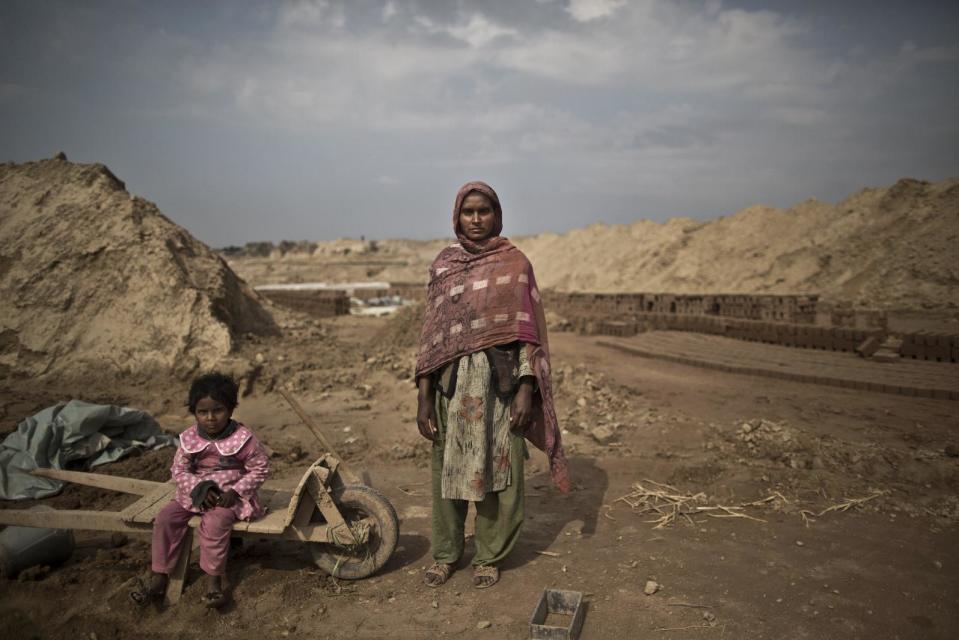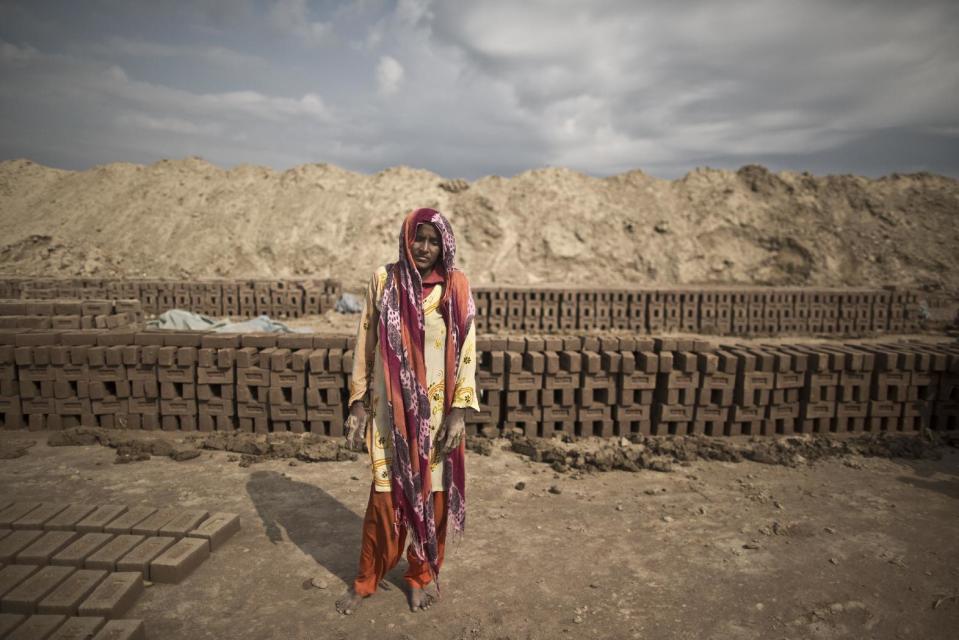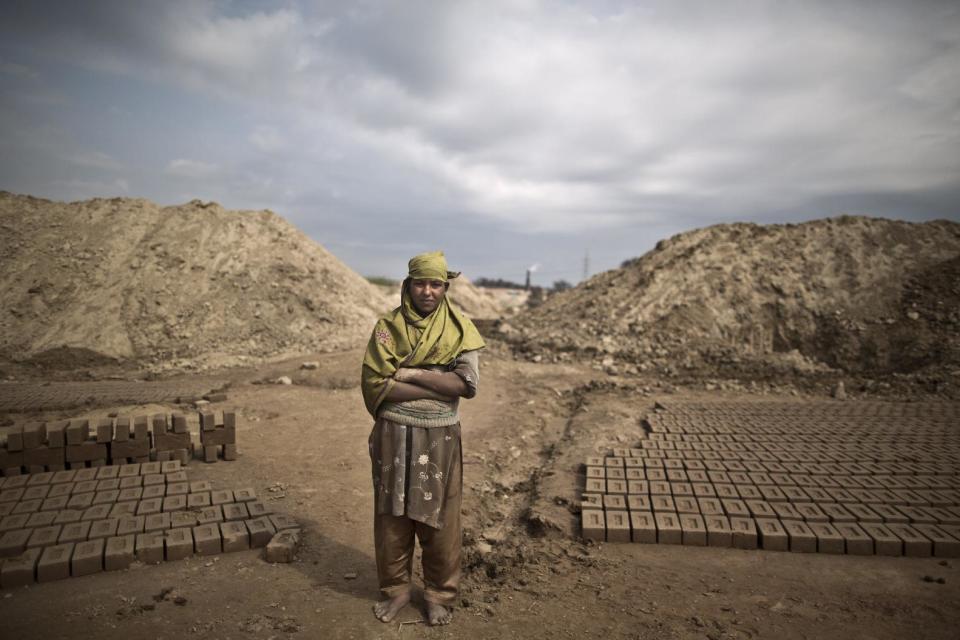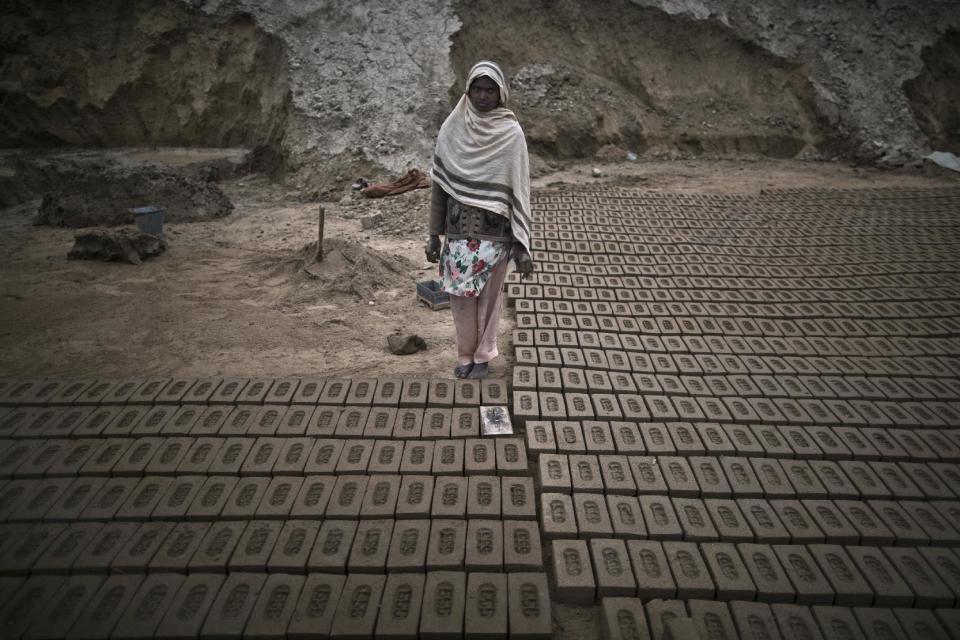AP PHOTOS: Women brick-makers in debt in Pakistan
MANDRA, Pakistan (AP) — Amna Bhatti has spent half a century shaping mud into bricks in a huge kiln south of the Pakistani capital, Islamabad. She started by paying off her parents' debt and now she's on to her late husband's. She'll probably spend the rest of her life here.
Bhatti was 10 when she started working at the kiln to pay off her parents' debt. Now, at 60, she is paying off the 250,000 rupees (approximately $2,500) in debt her husband left behind when he died 12 years ago.
She has managed to cut 1,000 dollars off that original loan, but has taken more loans from her employer — so it is doubtful she will ever emerge from debt in her lifetime.
"We are poor, and we will always stay poor. When you enter this road the only way out of it is death," Bhatti said, speaking next to the clay she was shaping into bricks.
Tens of thousands of other poor Pakistanis work hard in brick kilns, agriculture fields and other hard labor across Pakistan in what is called "bonded labor" to pay off family loans often passed down through generations. They often have no proper living facilities or basic amenities like running water or bathrooms. They generally make about 350 rupees a day (approximately $3.50) for their hard work.
There are no reliable statistics about the number of Pakistanis living and working as bonded laborers. But they can be found across the country working in agriculture, the carpet-making industry, brick kilns and other industries, according to the National Coalition Against Bonded Labor, a joint platform of different rights organizations.
International Women's Day is being observed on March 8. This gallery of 14 images by Associated Press photographer Muhammed Muheisen of Pakistani women working in brick factories demonstrates the difficult conditions under which many Pakistani women labor.
__
Follow AP photographers and photo editors on Twitter: http://apne.ws/15Oo6jo.
___
Follow Muhammed Muheisen on Twitter at www.twitter.com/Muheisen81.
